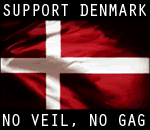On Failing the Darwinian Test: Demographics as Destiny
We now live in Elisabeth's world – not just because technology has caught up with the deity and enabled women in their fifties and sixties to become mothers, but in a more basic sense. The problem with the advanced West is not that it's broke but that it's old and barren. Which explains why it's broke. Take Greece, which has now become the most convenient shorthand for sovereign insolvency – "America's heading for the same fate as Greece if we don't change course," etc. So Greece has a spending problem, a revenue problem, something along those lines, right? At a superficial level, yes. But the underlying issue is more primal: It has one of the lowest fertility rates on the planet. In Greece, 100 grandparents have 42 grandchildren – i.e., the family tree is upside down. In a social democratic state where workers in "hazardous" professions (such as, er, hairdressing) retire at 50, there aren't enough young people around to pay for your three-decade retirement. And there are unlikely ever to be again. Look at it another way: Banks are a mechanism by which old people with capital lend to young people with energy and ideas. The Western world has now inverted the concept. If 100 geezers run up a bazillion dollars' worth of debt, is it likely that 42 youngsters will ever be able to pay it off? As Angela Merkel pointed out in 2009, for Germany an Obama-sized stimulus was out of the question simply because its foreign creditors know there are not enough young Germans around ever to repay it. The Continent's economic "powerhouse" has the highest proportion of childless women in Europe: one in three fräulein have checked out of the motherhood business entirely. "Germany's working-age population is likely to decrease 30 percent over the next few decades," says Steffen Kröhnert of the Berlin Institute for Population Development. "Rural areas will see a massive population decline, and some villages will simply disappear."Related: The Party's Over h/t OrthodoxyToday.org
Labels: Demographics, Economics, Europe, Religion, Socialism








